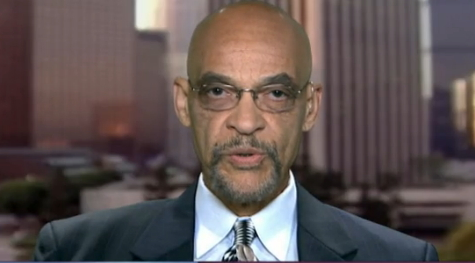Earl Ofari Hutchinson
If former Balch Springs, Texas police officer Roy Oliver was stunned when he was found guilty of murder in the slaying of 15-year-old Jordan Edwards, there was good reason. He was the rarest of rare breeds. That is a cop who wantonly kills an unarmed civilian and then is prosecuted, let alone convicted. The grim numbers tell the tale of why an Oliver should be shocked at his conviction. In the past decade, just five non-federal cops have been convicted of murder, and only one of them has served any hard prison time. The other four convictions were overturned on appeal.
The Oliver case could have easily gone the same way as the dozens of other cases where cops who kill aren’t charged, and if charged routinely skip away scot free. He was white, on duty, and he used the standard get out of prosecution claim, “I feared for my life.” The fear was that Edwards was trying to run his partner over after he and his friends were stopped by Oliver after coming from a party. The other necessary ingredient for no prosecution was that Edwards was a young African-American male. That’s almost always enough to guarantee no action.
When there is a prosecution, the pattern goes like this. The officer that commits the deadly act is placed on paid administrative leave. Police officials when confronted with the pro forma outcry and demands from civil rights and community leaders for an investigation, make solemn promises to do that. They assure that their investigations will be thorough and impartial.
They aren’t. The police agencies that are on the hot seat for a dubious shooting of a civilian investigate themselves. There is almost never an independent, outside agency that conducts a truly impartial investigation. The one agency that can do that is the Justice Department. Even during the Obama years, that was still a rarity.
If an officer is charged, their defense lawyers are top legal guns, with lots of experience defending police officers accused of misconduct. Police unions bankroll their defense and spare no expense. Cops rarely serve any pre-trial jail time. They are released on ridiculously low bail. Their attorneys also play for time. Edwards was a near textbook example of that. Oliver murdered him in April 2017. That’s a long time. Memories dim, the case has long since fallen out of the news, and the attorney for the officer charged file motion after motion to get the case tossed or to stall and delay a trial.
If the cops are tried by a jury, police defense attorneys seek to get as many middle-class people, whites and even blacks and Latinos, on the jury as possible. The presumption is that they are much more likely to believe the testimony of police and prosecution witnesses than black witnesses, defendants, or even the victims. It’s an uphill battle for prosecutors to overcome both pro-police attitudes and negative racial stereotypes.
All these elements were potentially at play in the Oliver case. However, there were differences. Edwards was a high school honors student, with no criminal record. There was almost universal consensus from school officials and community leaders that Edwards was an exemplary role model. Their was no evidence that he or his friends were suspects in a crime. The case was tried in Dallas. The jury represented a good cross section of the community.
The prosecution hit hard on the unwarranted circumstances of the stop, and the deadly train of events that led to the murder. The prosecution got an admission that there was no actual threat to Oliver’s life from Edwards. That admission stunningly came from Oliver’s partner. This was even a greater rarity; namely an officer breaking the blue code of silence and not backing another cop’s claim of self-defense. The code of silence is a powerful obstacle to convicting bad cops. Officers hide behind it and refuse to testify against other officers, or tailor their testimony to put the officer’s action in the best possible light.
This is near impossible to get around. When police claim that they fear for their lives in confronting civilians and they use deadly force solely in self-defense, if brought to trial judges and juries routinely buy this line and acquit.
Thankfully this time they didn’t. Texas Governor Greg Abbott took the rare step of tweeting that the conviction was the right thing and that Edwards was a life “that should never have been lost.” This frank admission applies to countless other young blacks whose lives were similarly lost to cops such as Oliver who overuse deadly force.
The takeaway from the Oliver case for those victims and others in the future is that cops can and should be prosecuted for wanton killings. When they are and there’s a vigorous prosecution, police officers willing to break the code of silence, and a community that rallies behind the victim and their families, cops who murder can be convicted—and they should be.
Earl Ofari Hutchinson is an author and political analyst. He is the author of the forthcoming Why Black Lives Do Matter (Middle Passage Press). He is a weekly co-host of the Al Sharpton Show on Radio One. He is the host of the weekly Hutchinson Report on KPFK 90.7 FM Los Angeles and the Pacifica Network.

